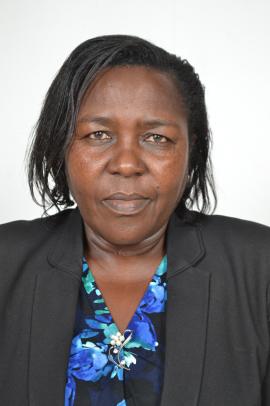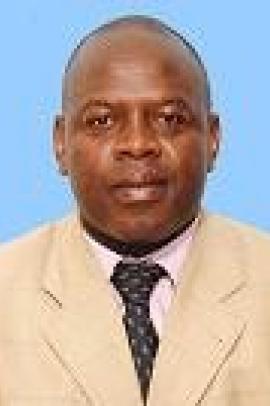Student Short Biography
(Max 250 words)
Samora Andereah Omuodo who was born in Nairobi Hospital to
Ben and Lorna Omuodo in Nairobi in December 1986 developed
an early interest in the application of Technology in our day to day
lives and in business though early exposure to the same via his
Granfather Samuel Okeyo who set up a pioneering Internet Service
Provider in the 1990’s. This led to his pursuit of a Bachelors degree
in Business Information Technology at University of Eastern Africa,
Baraton and subsequently after gaining more professional
experience as an Information Technology Officer at National
Hospital Insurance Fund, a Masters degree in Project Planning and
Management at The University of Nairobi which he is hoping to
complete shortly.
When not in school, when he is not preoccupied by his formal
work, Samora likes to participate in Entrepreneurship ventures and
enjoys various applications of technology ranging from playing
games, creating music, watching sports.
In the future he hopes to enroll for a Doctoral degree which will
enable him to fulfil his life wishes hence helping him prove that
human relation is the most genuine form of relation one can have.

Thesis / Project Title
INFLUENCE OF INSTITUTIONAL CAPACITY ON THE IMPLEMENTATION OF HEALTHCARE INSURANCE MANAGEMENT INFORMATION SYSTEM PROJECTS IN MERU COUNTY, KENYA
Thesis / Project Abstract
(Max 250 words)
Project implementation measurement is crucial in managing projects as it enables the project manager to establish challenges in budget and scope in time and devise proper mechanisms that address these challenges. Insufficient information and ineffective management of project not only caused project cost overrun, completion delays but also termination before completion. The purpose of this study was to influence of institutional capacity on implementation of healthcare insurance management information systems projects in health care facilities in Meru County, Kenya. The study sought to achieve the following objectives; to evaluate the extent to which infrastructure, human resource factors, institutional finance factors and management practices influences influence successful implementation of healthcare insurance management information systems projects in health care facilities in Meru County, Kenya. The study adopted a descriptive research design with the target population being 358 comprising of project managers, county officials, hospital staff and the HMIS staff. Stratified simple random sampling techniques were used to select a sample of 216 respondents. Primary data was obtained using self-administered questionnaires. Interview guides were also used. Data was coded and entered into Statistical Packages for Social Sciences (SPSS V. 25). In order to effectively analyze the primary quantitative data, descriptive statistics including percentages, frequencies, means and standard deviation were used. Presentation of quantitative data was done using frequency in tables. Presentation of qualitative data was done in prose form, involving explanations. Inferential data analysis was done using multiple regression analysis. In testing the significance of the model, the coefficient of determination (R2) was used. F-statistic was also computed at 95% confidence level to test whether there is any significant relationship between the variables. The findings were presented in Tables. The research found that the hospital had a back –up generator in case of power outage; and electricity in the facility is always available. The study found that the information collected by the health workers is often used by the hospital management team. The research found that the organisations use the funds well; there has been increase in revenue; the organisation has numerous sources of funds; and the organisation allocates the funds equally distributed. The research also found that the managers have wide range of abilities; the mangers are very skilled; and the managers consider rights of employees. The study concluded that human resource factors(r=0.864 and a p=0.011) had the greatest influence on implementation of healthcare insurance management information systems projects in health care facilities in Meru County, followed by infrastructure (r=0.833 and a p=0.010), then institutional finance factors(r=0.771 and a p=0.003) while Management Practices(r=0.692 and a p=0.031) had the least influence on the implementation of healthcare insurance management information systems projects in health care facilities in Meru County. The study recommends that management should be on the forefront of identifying resources for the projects and linking well with their stakeholders so as to achieve general planned projects success. The trainings should also be continuous and the employees and managers updated more frequently on any new updates. The authorities and ministries should employ more staff to the facilities to effectively run health services and other related services such as healthcare insurance management information systems.
Research Supervisors
Dr. Reuben Kikwatha





